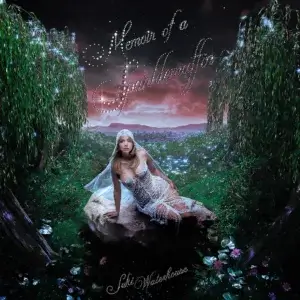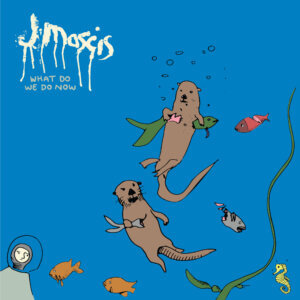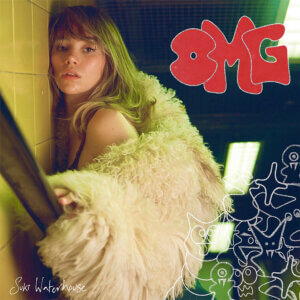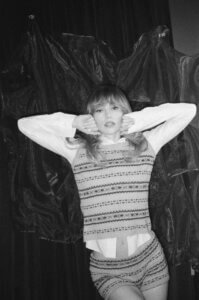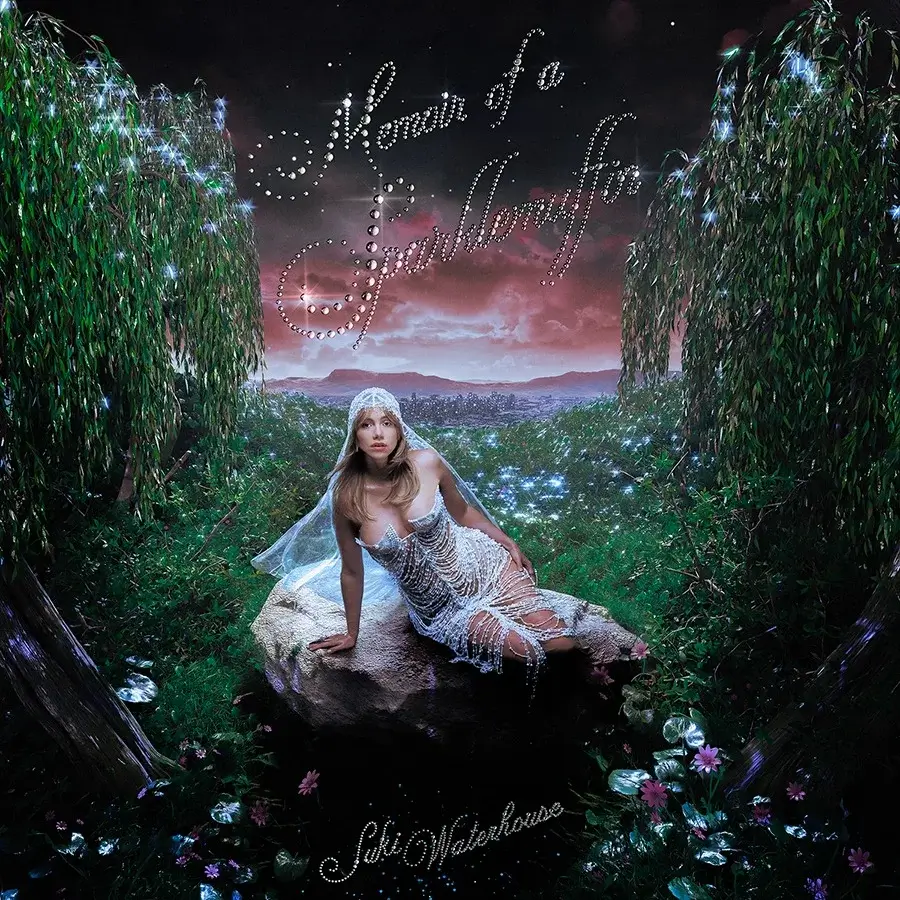
6.4
Memoir of a Sparklemuffin
Suki Waterhouse
Like the cryptic and whimsical title, Memoir of a Sparklemuffin, Suki Waterhouse’s sophomore LP feels disingenuous, falling short of its thematic depth. Across a meandering 18 tracks, Waterhouse can’t decide between dreamy indie-pop and nostalgic musings, and too often these songs feel lodged in teenage reminiscence rather than the more intimate, age-appropriate themes like motherhood or personal growth.
As a platinum-certified artist with a successful acting and modeling career, and after performances at Coachella and Lollapalooza, this record feels strangely immature, pandering to a younger audience. Instead of a metamorphosis, Memoir of a Sparklemuffin offers fleeting moments of depth overshadowed by adolescent lyrics like “I’m mentally ill and that’s why you date me” on “Everyone Breaks up Anyway,” leaving one to wonder if she’s still playing a
younger version of herself.
Suki’s sound can best be described as dream pop, with inflections of LA garage rock like Best Coast. For some reason, it feels like she’s wearing these sounds, offering cheap imitations or contrived, superficial borrowings of unfamiliar subcultures. Of course, one cannot claim to know her level of engagement, but it’s easy to tell someone isn’t writing what they know, all clichés aside. Waterhouse claims this piece “doubles as a mirror image of her life as a consummate creative, artist, actress, model, and mother,” but there is almost none of that here, besides the song “Model, Actress, Whatever,” where she only glances at these themes: “Call me a model, an actress, whatever/Other half of my baby, we stay together.”
The project’s superficiality is best represented by the formation of its title and theme, where Suki came across a spider called the “sparklemuffin.” “I wanted a totem of metamorphosis, but I didn’t feel like a butterfly. I felt more like a scrappy spider,” she says. Like the genres she’s imitating — Waterhouse found something miscellaneous, leaned too heavily on it for thematic complexity, and overstates how much personal meaning it has to her. There’s no reference to the spider outside of the title, and lack of a true “metamorphosis” that this album supposedly demonstrates. The lyrics feel fixated on the past, which Suki explains as a necessary urge in her songwriting, or the “need to keep exposing darkness to sunlight.” This kind of contradicts the declaration that this album is a “mirror image” of her current life. With an understanding that contradiction is often at the core of artistry, this is the kind of dissonance that is unflattering. At a period in her career that could be fecund ground for resonant songwriting, she avoids confrontation, favoring pubescent lyrics like this line on “Faded:” “Living in a movie cause you look just like James Dean from the internet.”
Waterhouse positions Memoir of a Sparklemuffin as a deeply personal and introspective album, yet it falls short in delivering meaningful emotional impact. The central metaphor of the Sparklemuffin spider feels forced, and instead of anchoring the album in a cohesive theme, it becomes a superficial gimmick. While Waterhouse claims that the album reflects her life as an artist, actress, model, and mother, most of the lyrics feel disconnected from these experiences, leaning more on nostalgia and juvenile themes.
Tracks like “To Get You” and “Model, Actress, Whatever” attempt to explore intimate emotions surrounding career artists, yet they come across as melodramatic and tacky. The songs only gesture at her multifaceted life, never diving deep enough to evoke complexity. The emotional impact is further diluted by clichéd phrases like, “All of my dreams came true, the bigger the ocean, the deeper the blue,” which lack the figurative layers needed to resonate.
Even the more upbeat, poppy moments, such as “Supersad,” with its fast-paced drums and pop punky “there’s no point in being supersad” hook, seem to undercut the album’s supposed emotional depth, feeling more like an attempt at creating a 90s pop nostalgia hit than a serious exploration of feelings. She admits to this, aiming for a “a nineties song you could hear playing at the mall in Clueless or as an opening track for Legally Blonde.” This sentiment is woven into the LP, often aiming for something rather than coming from somewhere, again avoiding the clichés of “writing from within.” Imitation and derivation are perfectly valid approaches to songwriting, but only when it hits the mark, and feels more involved than what Suki delivers. As someone less familiar with Suki’s discography, and decidedly outside of her target audience, I found Memoir of a Sparklemuffin difficult to connect with on a deeper level. Despite its polished production and occasional catchy melodies, the album ultimately felt hollow. The sonic influences—dream pop, indie, and Americana—seemed like surface-level imitations rather than authentic expressions, leaving little emotional substance behind.
Fans of Waterhouse’s earlier work or listeners looking for light, dreamy pop with a retro twist may find something here. However, those seeking more lyrical and thematic depth may come away disappointed. The album feels like a missed opportunity for Waterhouse to fully explore her experiences, opting instead for vague, adolescent musings that fail to live up to the promise of the album’s intriguing concept.
Order Memoir of a Sparklemuffin HERE
Latest Reviews
Tracks
Related Albums
Related News
Advertisement
Looking for something new to listen to?
Sign up to our all-new newsletter for top-notch reviews, news, videos and playlists.





